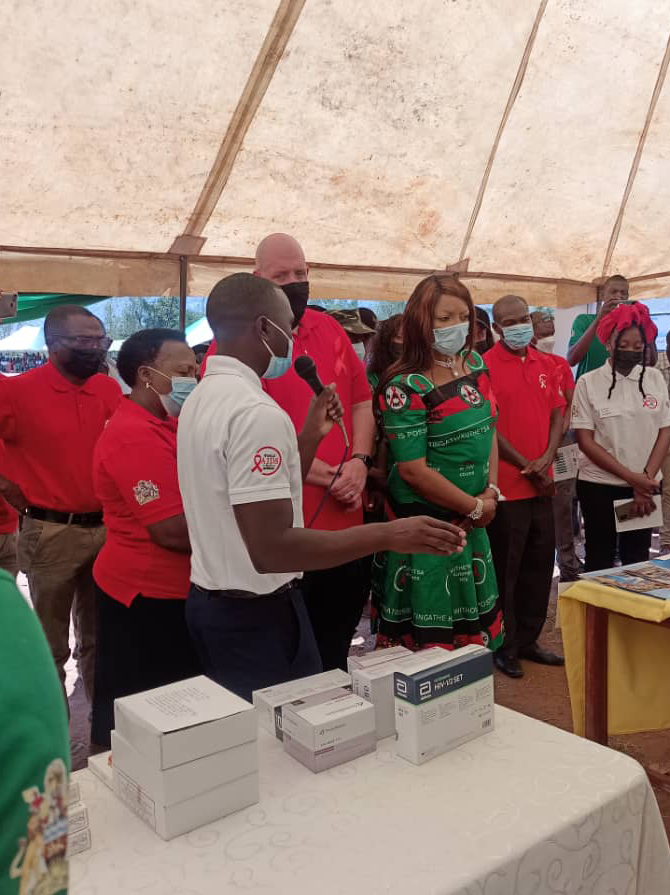
On World AIDS Day, December 1, staff from the International Training and Education Center for Health (I-TECH) convened with the Ministry of Health (MOH), Columbia University’s ICAP, and other national stakeholders in Malawi to present the results of the 2020-21 Malawi Population-based HIV Impact Assessment (MPHIA). The commemoration, with the theme of “End Inequalities, End AIDS, End Pandemics,” was held at Bumba Primary School grounds in Rumphi District.
Preliminary results of the assessment, led by the MOH and ICAP, show that the national HIV testing program, supported by I-TECH, has achieved a significant increase in the awareness of status among HIV-positive adults—from 77% in 2016 to 90.9% in 2020-21.
Malawi has also made great strides toward reaching the UNAIDS 95-95-95 Fast Track targets, surpassing both the second 95 (results indicate that 98% of those who know their status are initiated on treatment) and third 95 (results indicate 97% of those on treatment are virally suppressed).
The assessment will be critical to informing future programming, says Dr. Rose Nyirenda, Director of the Ministry of Health’s HIV and AIDS Department. “The 2020-21 MPHIA has produced a wealth of information that will be critical for tailoring our services and to refine strategies for closing the remaining gaps,” says Dr. Nyirenda.
The HIV and AIDS Department also exhibited commodities (antiretroviral medications, testing kits, opportunistic infection (OI) and sexually transmitted infection (STI) medicines, condoms, voluntary medical male circumcision kits) that are procured and managed through the Supply Chain and Logistics Unit.
Correction: A previous version of this article misstated the organization that conducted the 2020-21 Malawi Population-based HIV Impact Assessment. This assessment was led by the Malawi Ministry of Health and Columbia University’s ICAP.